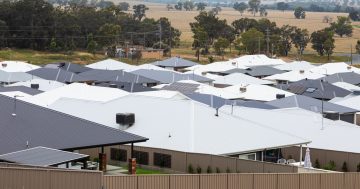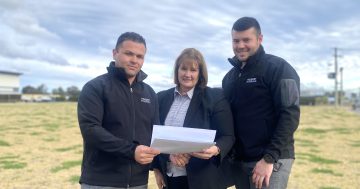
Wagga Wagga City Council is looking to test a new AI program that could speed up development application approval. Photo: PeopleImages.
The NSW Government is looking to tackle a backlog of unresolved development applications (DAs) by investing $5.6 million in an AI program.
The trial aims to support local councils by reducing manual workloads and streamlining the pre-lodgement phase, allowing for projects to be approved or denied in a greatly reduced timeframe.
The AI assistance will theoretically support councils by focusing on four areas of the pre-lodgement phase: providing a pathway and requirements finder, helping applicants complete a self-assessment health check, providing the council with a tool to quickly identify non-compliant elements within a submission, and a document assurance program that helps verify applicants’ documents.
The NSW Department of Planning, Housing and Infrastructure hopes that by speeding up approval times, councils will be able to deliver more housing.
LGAs across the state have until 3 March to submit their applications for the trial. Wagga Wagga City Council was among the first to express interest in the program and is expected to begin using it by the second quarter of 2024.
Council manager for development assessment and building certification Paul O’Brien said the introduction of AI would help ensure applications were in the correct format so the council wasn’t going back and forth trying to clarify critical project information.
“For most of the regular clients, they understand what needs to happen; however, for occasional developers who might do it once or twice in their lifetime, it’s very confusing, and having an AI presence can help step them through it,” Mr O’Brien said.
Minister for Planning and Public Spaces Paul Scully said councils were responsible for determining about 85 per cent of all new dwellings in NSW and that introducing more AI features into their planning systems meant they could assess DAs faster.
“Using AI tools will help us cut down DA assessment times, saving proponents, councils, developers and taxpayers valuable time and money,” Mr Scully said.
“AI won’t replace our highly skilled planners at the core of the planning system, but it will free them up from repetitive daily tasks so that they can focus on more complex DAs.
“The department is also trialling AI tools such as chatbots and automated document processing to support triage queries and enhance response times for the Planning Portal.”














